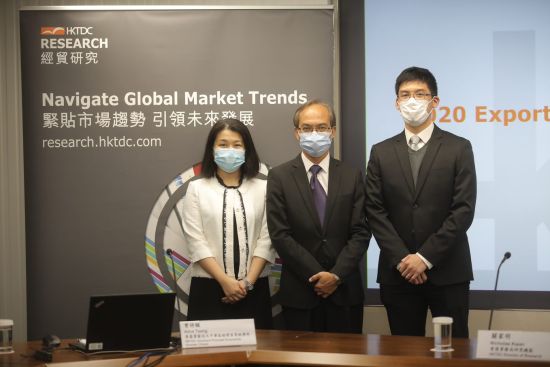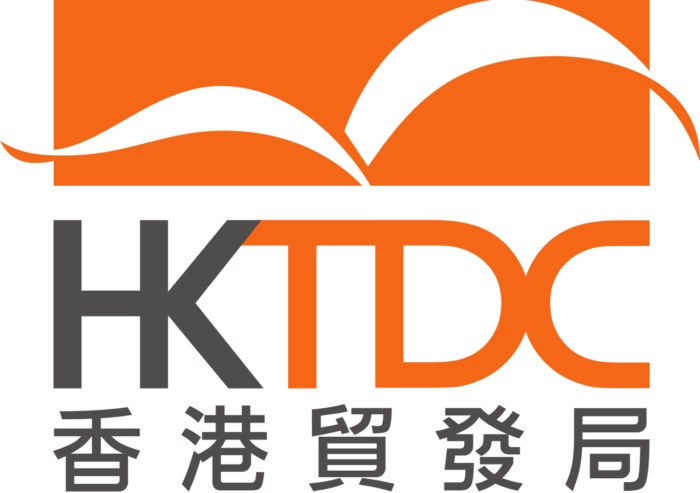Local wine traders urged to tap growing mainland market
The HKTDC Export Index, published by the Hong Kong Trade Development Council (HKTDC), increased further in the fourth quarter of 2020. The index has now risen for three consecutive quarters – rebounding from a record low of 16.0 to 36.2 – revealing a gradual improvement in the sentiment among local exporters. About 60% of those surveyed for the index anticipate sales will increase or remain unchanged in the coming year. Taking all these factors into consideration, the HKTDC forecasts Hong Kong’s exports in 2021 will grow 5% by value year-on-year.

The HKTDC has also made an upward revision to its estimates for this year’s total exports, from -10% to -3%. “We are glad to see that the situation is better than expected. Amid the pandemic, local exporters turned swiftly to online sales platforms to connect with buyers and get new orders. Driven by the rise of the stay-at-home economy, the demand for computers, webcams and microphones has increased greatly, making the city’s electronics exporters more optimistic about growth opportunities in the coming year,” Mr Kwan said.
Export Index rebounds
The HKTDC conducts a survey every quarter, interviewing 500 local exporters from six major industries including machinery, electronics, jewellery, watches and clocks, toys and clothing to gauge their business confidence on near-term export prospects. The readings of the HKTDC Export Index indicate an optimistic or pessimistic outlook, with 50 as the dividing line.
HKTDC Assistant Principal Economist (Greater China) Alice Tsang said the index rose 11.1 points to 36.2 in the fourth quarter with a broad improvement across all major industries. The strongest rebound was seen in the jewellery sector, leaping from 20.1 to 33.0. “However, the index remains in contraction territory, indicating that uncertainties have cast a shadow on the short-term export outlook. Among other issues, the survey showed that the pandemic (54.9%), declining global demand (23.8%) and escalated trade tensions between the United States and Mainland China (9.6%) are the major concerns for Hong Kong exporters,” Ms Tsang said.
In terms of major markets, Hong Kong exporters are more confident in the mainland (48.4), Japan (47.3) and ASEAN (47.2), while the outlook for European Union (44.0) and the US (44.4) is less promising. Aside from the main index, all subsidiary indexes revealed an upward trend, showing signs of improvement in trade value, procurement and employment.
Manufacturers show agility
More than 80% of survey respondents said they had been adversely affected by the pandemic over the past three months, with order-size reduction (56.9%), order cancellations (22.3%) and price bargaining (14.0%) cited as the most common downside factors. In response to these challenges, compared with last quarter, an increasing number of local exporters have cut unit prices (27.6%), downsized business (21.8%) or lowered the minimum order quantity (15.5%).
“Meanwhile, Hong Kong companies have shown agility in finding new opportunities such as developing online sales channels (21.8%) and new product categories (13.8%), as well as expanding into the retail market in the mainland and diversifying sales to other overseas markets (3.8%),” Ms Tsang added.
Mainland gets into the spirit
A separate HKTDC survey found that the emergence of a cocktail culture in the mainland has promoted the consumption of spirits, with mainland consumers spending an average of Rmb 3,059 in the past year on buying or drinking spirits, including cocktails (35%), vodka (34%), whisky (33%), brandy (27%), rum (14%) and liqueur (13%). It is expected that the demand for imported liquor such as sake and fruit wine will be on the rise in the coming year.
The average annual spending on imported wine consumed by the survey respondents at home was Rmb 1,407, while that spent for business events and as gifts was Rmb 3,284. France (39%), Spain (12%) and Italy (10%) were the most popular traditional wine regions among those surveyed, while for wines from new producers, they preferred those from the Mainland China (32%), Australia (19%) and Chile (10%).
Mainland consumers prefer to buy wines from large e-commerce platforms (33%), wine stores (25%) and supermarkets (25%). They are also interested in purchasing a wide range of wine accessories such as wine racks (20%), decanters (18%), wine stoppers (15%), glasses (12%) and bottle openers (12%).
HKTDC Economist Poon Cheuk-hong said: “Mainland consumers now have a better understanding of wine. Hong Kong wine dealers looking to tap into the mainland market should consider importing less famous yet high-quality wines from different countries. To match with mainland consumers’ habit of purchasing wine through multiple channels, Hong Kong traders should adopt an online-to-offline sales and marketing model.”
The survey was conducted in May 2020 with about 1,500 middle-class mainland consumers from Guangzhou, Shanghai, Beijing, Chengdu, Harbin, Changsha, Nanjing and Xian polled through an online questionnaire.
References
– HKTDC Research website: http://research.hktdc.com/
– Hong Kong Export Index 4Q20: Exporter Sentiment Improves as Initial Covid-19 Shockwave Recedes https://bit.ly/2JpnkYX
– Hong Kong Export Outlook for 2021: A Cautious, Fragile Recovery Awaits https://bit.ly/3g9NM4p
– China’s Wine and Spirits Market (1): Wine Consumption Trends and Habits https://bit.ly/3qnapr7
– China’s Wine and Spirits Market (2): Imported Wine Selection Criteria https://bit.ly/2I7Q2N4
– China’s Wine and Spirits Market (3): Spirits Purchase Preferences https://bit.ly/37xFmA5
– Podcast: https://bit.ly/3qGnpZ4
– Photo download: https://bit.ly/33QANQn
About HKTDC
The Hong Kong Trade Development Council (HKTDC) is a statutory body established in 1966 to promote, assist and develop Hong Kong’s trade. With 50 offices globally, including 13 in Mainland China, the HKTDC promotes Hong Kong as a two-way global investment and business hub. The HKTDC organises international exhibitions, conferences and business missions to create business opportunities for companies, particularly small and medium-sized enterprises (SMEs), in the mainland and international markets. The HKTDC also provides up-to-date market insights and product information via trade publications, research reports and digital news channels. For more information, please visit: www.hktdc.com/aboutus. Follow us on Twitter @hktdc and LinkedIn
Media enquiries
Please contact the HKTDC’s Communication and Public Affairs Department:
Beatrice Lam, Tel: +852 2584 4049, Email: beatrice.hy.lam@hktdc.org
